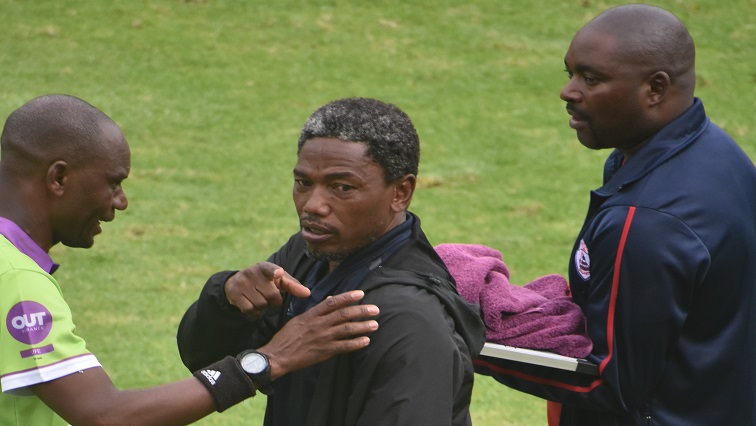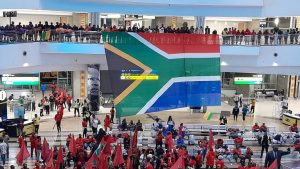African football is faced with a situation that needs urgent, aggressive and decisive action. We need to get up and act and act now as a continent, more especially looking at men’s football.
Generally, it is accepted that the real measure of the football strength of any nation is the performance of its national teams, especially the senior national team. However, by this measure, we are, as a continent, below our level given the talent as opposed to the difference in performances consistently displayed by our individual players playing in and outside the continent.
There is something fundamentally wrong when our talented African players are able to compete and even surpass some of their counterparts at their respective clubs all over the world, but are unable to replicate the same performances when it is for their own national teams’ benefit. Yet, contrarily, those players that they compete with and even surpass in performance, are able to deliver for their respective national teams.
The performances of all our African teams on the world stage, the FIFA World Cup, leave far more than a lot to be desired. The level of deterioration in how we have performed in the last few tournaments is stark.
The table (Table 1 attached) shows a decline in the performance of our teams in the FIFA World Cup, since the turn of the century. In the three tournaments played in the 90s, African teams were not just able to progress from the group stage on all three occasions despite comparatively less representation of 2-3 countries. Those countries still finished on top of their groups in all three tournaments (1990-Cameroon, 1994-Nigeria and 1998-Nigeria).
In the same period, Cameroon made the Round of 8 for the first time for an African Team in 1990. This had set the tone and rightfully, raised expectations.
Duly, some football technicians and experts even went a step further to predict that an African team would be in the semi-finals of the FIFA World Cup, before the end of the 20th century. And there was a very good reason to look forward to that happening.
The following three tournaments in the first decade of the 21st century did not do much to support the predictions. African teams progressed from the group stage in all of them, albeit as runners-up in their groups, making two appearances in the Round of 8 (2002-Senegal and 2010-Ghana).
While Ghana made it to the last 8 in 2010, it should be noted that in this particular edition of the tournament, Africa had six teams owing to having the host nation, over and above the usual five places. In essence, this means a total of five teams were unable to progress from the group stage.
Since 1990, only Ghana and Nigeria have progressed more than once from the group stage. Nigeria has done it three times (1994, 1998 & 2014), while Ghana two times (2006 and 2010)
Both Cameroon and Senegal have reached the Round of 8, in the year that they progressed from the group stage, in 1990 and 2002, respectively. As if by coincidence, they both played the opening game against the defending champions, Argentina and France, respectively, and won by a goal to nil.
Since 1990, only teams from the west have progressed from group stage more than once and/or reached the Round of 8. However, even with that, it is still erratic as no one team has reached the Round of 8, more than once.
The last two tournaments have painted what looks like a very gloomy picture of where our football, as a continent. However, the focus here is the progress, or lack thereof, of the African Teams. Introspection rather than the comparison between our continent and others. Save to say when Asia co-hosted in 2002, both co-hosts Japan and Korea Republic were only eliminated in the Round of 8 and 4, respectively.
While in 2014 we had two teams, Algeria and Nigeria, progress from the group stages – though both were eliminated in the Round of 16 – none of our five teams, Egypt, Morocco, Nigeria, Senegal and Tunisia, made it past the first round in the last World Cup, in Russia, in 2018.
This was the worst performance by African teams, though not unexpected, in the last 28 years of the tournament. It should have raised alarms among all the CAF members (individually and collectively) and a review of the technical status of the game, should have been conducted.
Notwithstanding, a serious engagement in this regard, can never be too late.
So, the picture vividly clear. Africa has moved from finishing first in the group stages of the FIFA World Cup to finishing as runners-up in the following decade, to failing to progress from the group stage in the last decade (2018).
Paradoxically, this comes at a time when CAF has in place Coaching Licences, which it has since demanded should be a pre-requisite for coaches to be allowed to lead their clubs in the CAF Club Competitions.
The CAF Licence System is relevant as national team players are coached on a daily basis by the club coaches. They only spend a few days with their national team coaches as they prepare for the international engagements. Collectively, that would be six weeks on any year where there was no international tournament like the Afcon or the FIFA World Cup, or even CHAN.
The national team is as good as the level and the quality of the players who play at the highest level from that nation. This has a direct impact on the performance of their national team, whether such players play in their domestic leagues or outside. Such quality is derived from the youth programs of such nations. These are programs specifically designed by experts who understand and appreciate the value of proper youth systems in delivering the best talent to the highest level of each country. While this is a universal principle, it needs to be applied specifically in each environment as conditions such as culture, mentality, economics, and societal orientation, and other factors differ from nation to nation and country to country.
While there can be many reasons advanced as factors that have influenced such dismal performances of the African teams on the world stage, one factor that cannot be overlooked in this trajectory is the impact of the introduction and reinforcement of Coaching Programs (the CAF Licences) in the continent. This has come in full swing, particularly, in the last decade. It would have been intended to improve the technical prowess of the African coaches, and therefore their teams (club and national), as well as their players.
Questions should now be asked if there has been a positive influence from these coaching programs. These questions should be asked and answered in relation to the quality of both youth players and the performance of the Youth National Teams. Equally, the same questions should be asked in respect of the quality of the senior players each country is able to produce and sustain, as well as the performance of the senior national teams, particularly at the FIFA World Cup.
A closer look at these programs in relation to their ability to create an African player who is better than the ones who achieved better performances in the previous World Cups is required. This needs to receive urgent attention from all of us as African technicians. Until and unless we create our own methodology in respect of our own conditions, we run the risk of underplaying our strengths while relying on our limitations.
If anything, this will ensure that our declining performances become the norm.
As a reference, there is a Brazilian way, the Dutch way, and so on, to coaching. Do we have a Nigerian way, Ghananian way, Egyptian way, just to cite a few of our leading nations? If not, maybe, then that is where we should start.
As things stand regarding World Cup champions of the 21st century, it would look very much like from the last four World Cups, three were won by national teams whose core was derived from their dominant team in their own domestic league. The last one was an exception as the French team had players from many different teams and different leagues. Before then a similar phenomenon had been witnessed in Brazil in 2002, which won the World Cup with players coming from different clubs and different leagues.
Otherwise, the following has been the norm: Italy 2006 had mostly players from Serie A and from Juventus; Spain in 2010 had most players from La Liga and from Barcelona; Germany in 2014 had most players from the Bundesliga and Bayern Munich.
How it all works out in 2022, remains to be seen!
One thing that does not look good at all, is the fact that no one would expect an African team to win it.
If anything, this is the reason we need to move and move very quickly to engage and come with real solutions. They may not bring us back for 2022 in Qatar, but those solutions should go a long way in preparing us for USA/Canada/Mexico in 2026.
Table 1 African teams and their Performances at the FIFA WC, since 1990
| WC YEAR | TEAM | ROUND OF 16 | ROUND OF 8 |
| 1990 | CAMEROON
(top of the Group) EGYPT |
CAMEROON | CAMEROON |
| 1994 | CAMEROON
MORROCO NIGERIA (top of the Group) |
NIGERIA | NONE |
| 1998 | CAMERRON
MORROCO NIGERIA (top of the Group) SOUTH AFRICA TUNISIA |
NIGERIA
|
NONE |
| 2002 | CAMEROON
NIGERIA SENEGAL SOUTH AFRICA TUNISIA |
SENEGAL | SENEGAL |
| 2006 | ANGOLA
COT D VIOUR GHANA TOGO TUNISIA |
GHANA | NONE |
| 2010 | ALGERIA
CAMEROON COT D VIOUR GHANA NEGIRIA SOUTH AFRICA |
GHANA | GHANA |
| 2014 | ALGERIA
CAMEROON COT D VIOUR GHANA NIGERIA |
ALGERIA
NIGERIA |
NONE |
| 2018 | EGYPT
MORROCO NIGERIA SENEGAL TUNISIA |
NONE | NONE |
Source: FIFA.com
By: Ziphozonke Dlangalala





